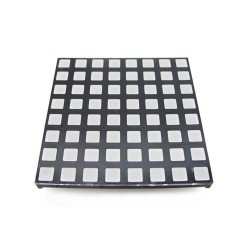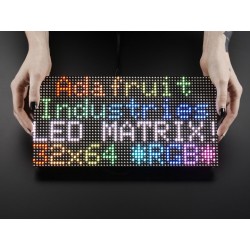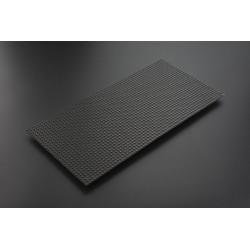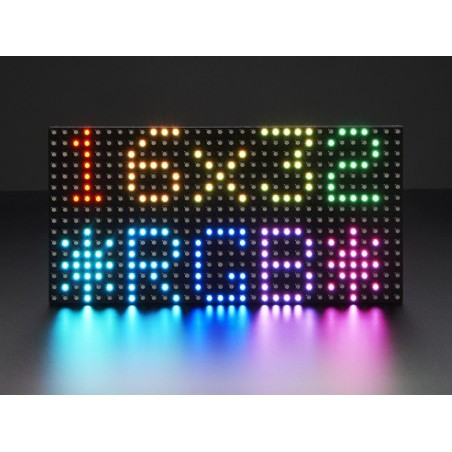
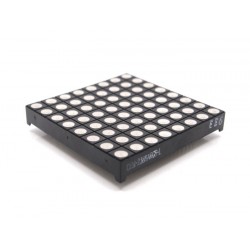
Matriz de LEDs RGB 8x8 com 60mm...
- DESCONTINUADO
- Em promoção!
- -10,00 €







Esta matriz com 512 LEDs RGB no formato 16x32, é normalmente utilizada para fazer écrans gigantes, em Nova York encontra-as por todo o lado para apresentar animações ou curtos videoclips.
Necessita de 12 pinos digitais (6 para dados + 6 para controlo) e de uma fonte de 5V capaz de debitar pelo menos 2A por painel. Permite interligar vários painéis de forma a obter um écran maior.
DESCRIÇÃO EM PORTUGUÊS BREVEMENTE DISPONÍVEL
Se tiver alguma dúvida neste produto não hesite em contactar-nos.
*Atenção: as imagens são meramente ilustrativas.
Bring a little bit of Times Square into your home with this 16 x 32 RGB LED matrix panel. These panels are normally used to make video walls, here in New York we see them on the sides of busses and bus stops, to display animations or short video clips. We thought they looked really cool so we picked up a few boxes of them from a factory. They have 512 bright RGB LEDs arranged in a 16x32 grid on the front. On the back there is a PCB with two IDC connectors (one input, one output: in theory you can chain these together) and 12 16-bit latches that allow you to drive the display with a 1:8 scan rate.
These displays are 'chainable' - connect one output to the next input - but our Arduino example code does not support this (yet). It requires a high speed processor and more RAM than the Arduino has!
These panels require 12 digital pins (6 bit data, 6 bit control) and a good 5V supply, up to 2A per panel. We suggest our 2A regulated 5V adapter and then soldering a jack on such as from our extension cord. Please check out our tutorial for more details!
Keep in mind that these displays are designed to be driven by FPGAs or other high speed processors: they do not have built in PWM control of any kind. Instead, you're supposed to redraw the screen over and over to 'manually' PWM the whole thing. On a 16 MHz arduino, we managed to squeeze 12-bit color (4096 colors) with 20% CPU usage but this display would really shine if driven by any FPGA, CPLD, Propeller, XMOS or other high speed multi-core controller. The good news is that the display is pre-white balanced with nice uniformity so if you turn on all the LEDs its not a particularly tinted white.
Of course, we wouldn't leave you with a datasheet and a "good luck!" We have a full wiring diagrams and working Arduino library code with examples from drawing pixels, lines, rectangles, circles and text. You'll get your color blasting within the hour! On an Arduino, you'll need 12 digital pins, and about 800 bytes of RAM to buffer the 12-bit color image. At this time we do not have wiring documentation for the MEGA, but we will update our tutorial in the next week to add MEGA
Please note! These panels are remainder stock from factories that make huge light boards. For that reason, the look, LED tint, power cable style and length, and precise size might vary from batch to batch, even though the basic operation, codebase and tutorial is the same.
Produtos Associados

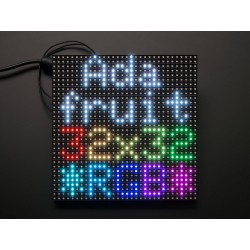

Esta matriz com 512 LEDs RGB no formato 16x32, é normalmente utilizada para fazer écrans gigantes, em Nova York encontra-as por todo o lado para apresentar animações ou curtos videoclips.
Necessita de 12 pinos digitais (6 para dados + 6 para controlo) e de uma fonte de 5V capaz de debitar pelo menos 2A por painel. Permite interligar vários painéis de forma a obter um écran maior.

